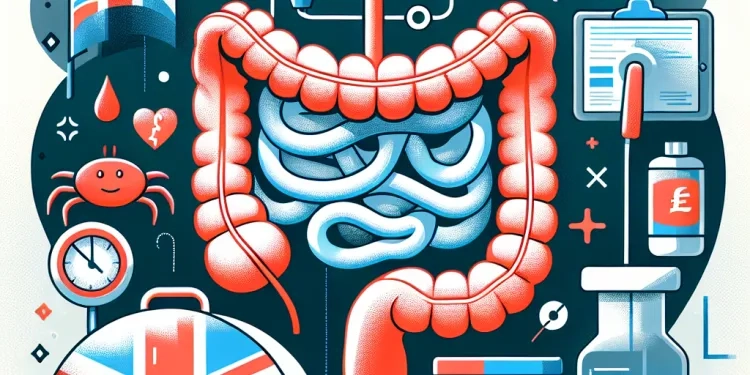
Find A Professional
More Items From Ergsy search
-
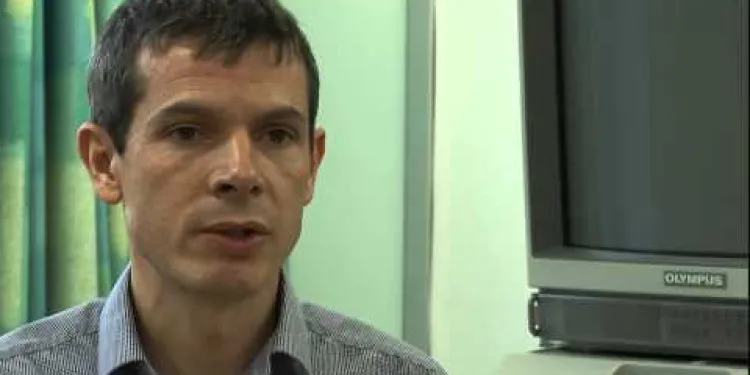
Bowel cancer - Symptoms and signs to look out for
Relevance: 100%
-

Learn about bowel cancer (British Sign Language version)
Relevance: 79%
-

What are the risk factors for bowel cancer?
Relevance: 78%
-

What role does diet play in the risk of developing bowel cancer?
Relevance: 75%
-

What lifestyle changes can help lower the risk of bowel cancer?
Relevance: 75%
-
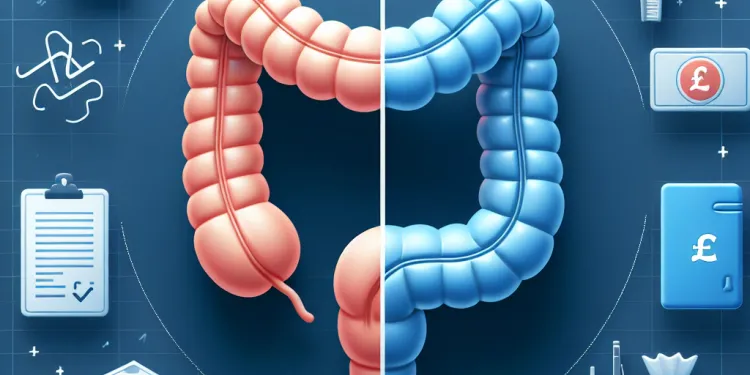
What is the difference between colon cancer and rectal cancer?
Relevance: 73%
-

Can bowel cancer spread to other parts of the body?
Relevance: 72%
-
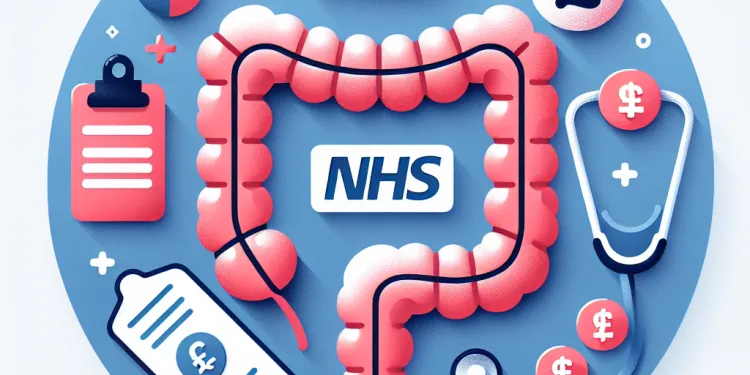
What treatment options are available for bowel cancer?
Relevance: 72%
-
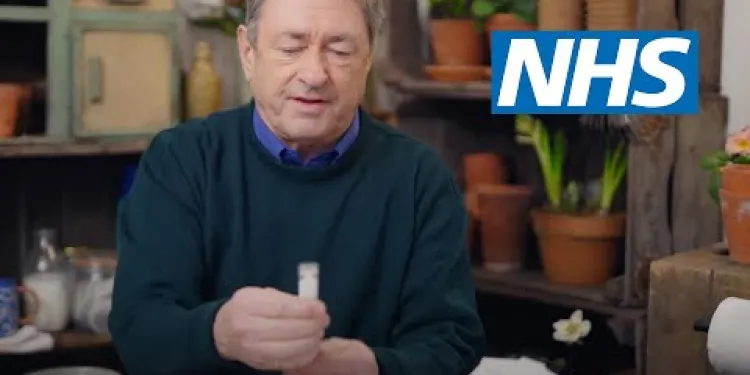
Bowel cancer screening: Alan Titchmarsh and Tommy Walsh | NHS
Relevance: 71%
-
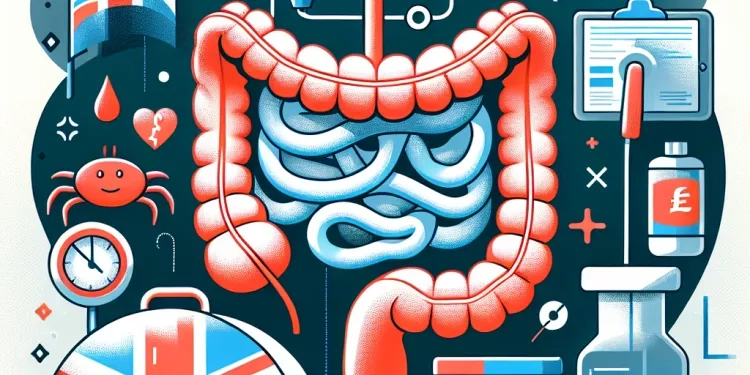
What is Bowel Cancer?
Relevance: 70%
-
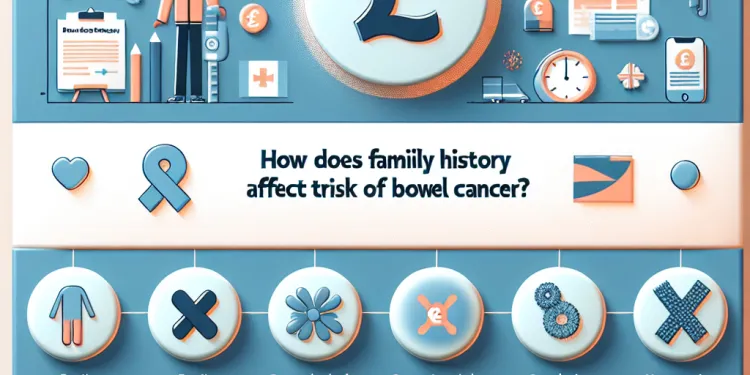
How does family history affect the risk of bowel cancer?
Relevance: 69%
-

Can bowel cancer be prevented?
Relevance: 67%
-
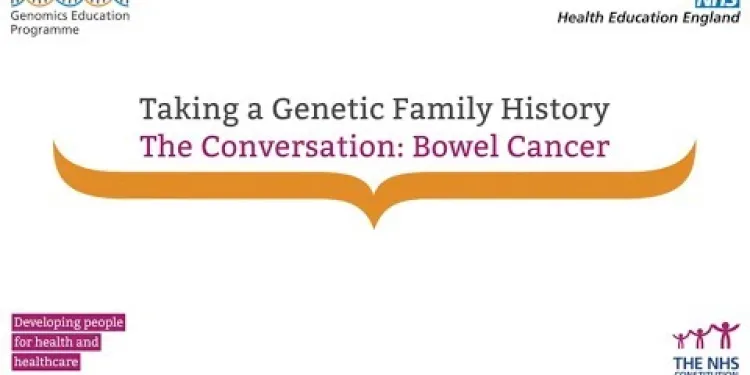
Taking a Genetic Family History - The Conversation (Bowel Cancer)
Relevance: 67%
-
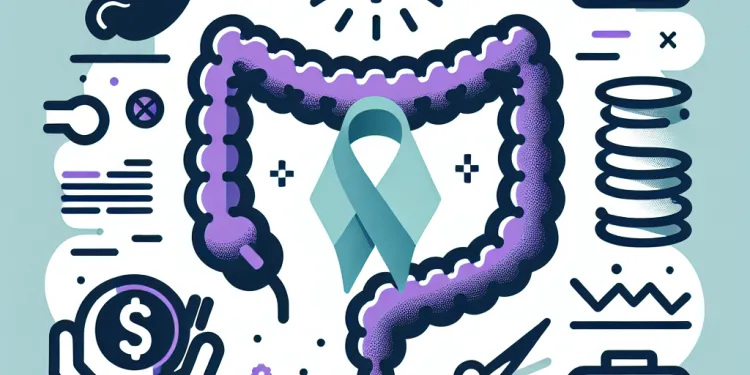
What is the survival rate for bowel cancer?
Relevance: 66%
-

How is the stage of bowel cancer determined?
Relevance: 65%
-
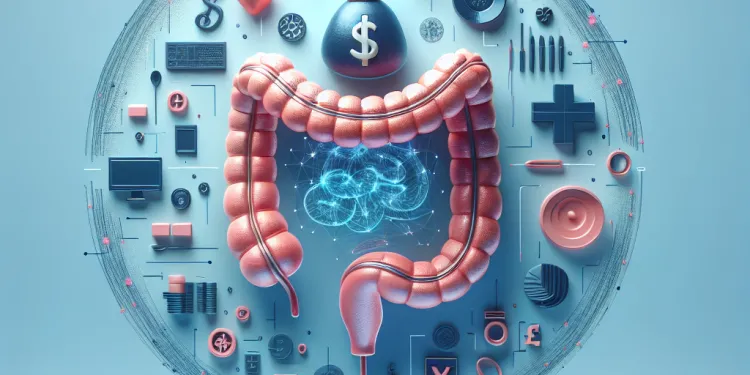
How common is bowel cancer?
Relevance: 59%
-

What support is available for individuals diagnosed with bowel cancer?
Relevance: 58%
-
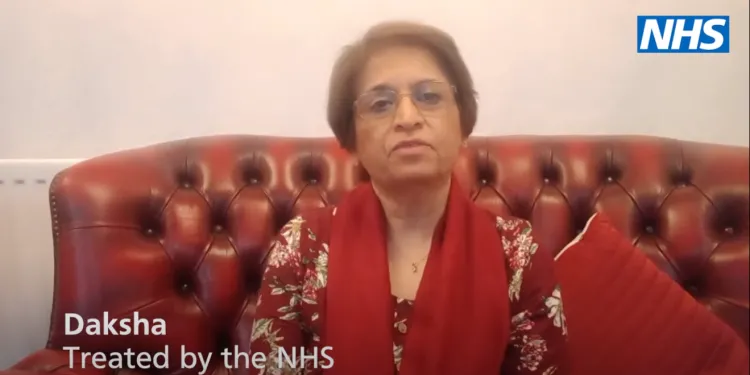
What is Cancer?
Relevance: 57%
-

How is bowel cancer diagnosed?
Relevance: 57%
-
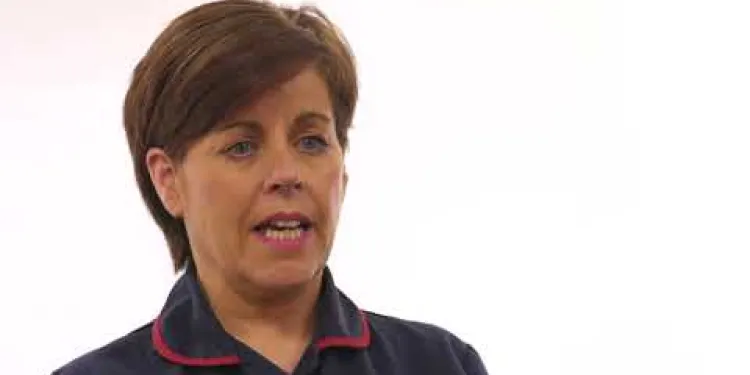
Ovarian Cancer
Relevance: 56%
-
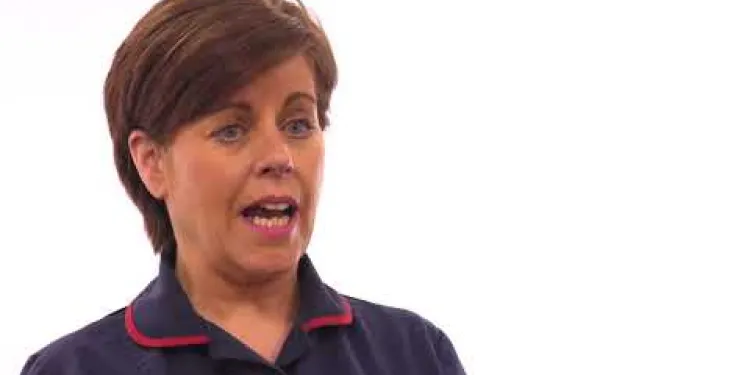
Endometrial Cancer
Relevance: 55%
-
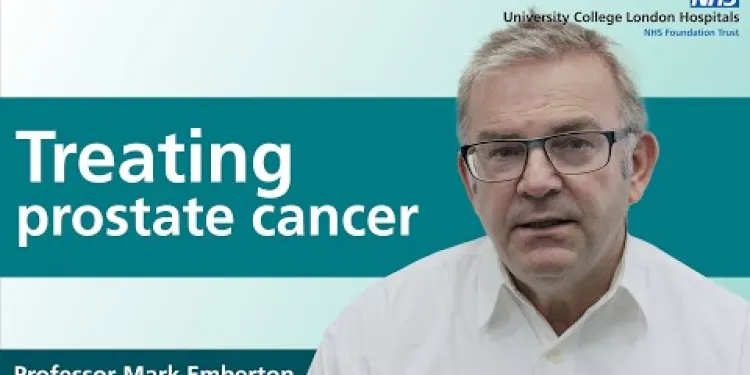
Treating prostate cancer
Relevance: 54%
-
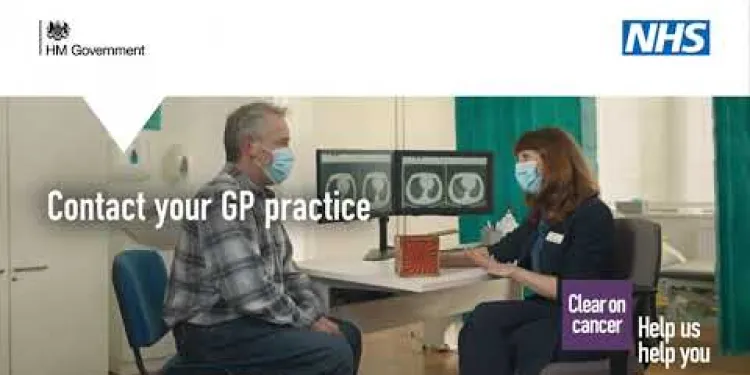
Don't carry the worry of cancer with you | NHS
Relevance: 53%
-
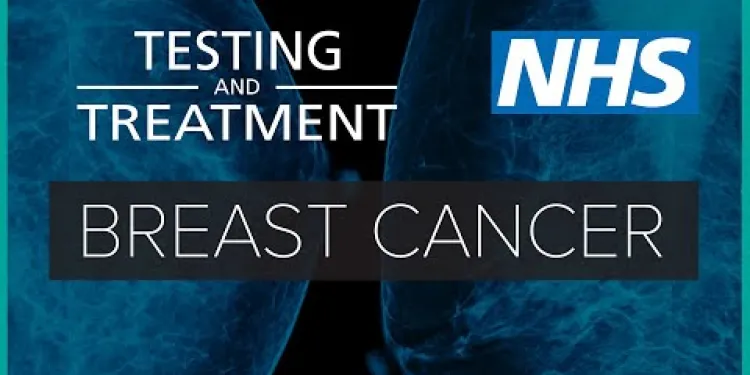
Breast cancer: testing and treatment | NHS
Relevance: 52%
-
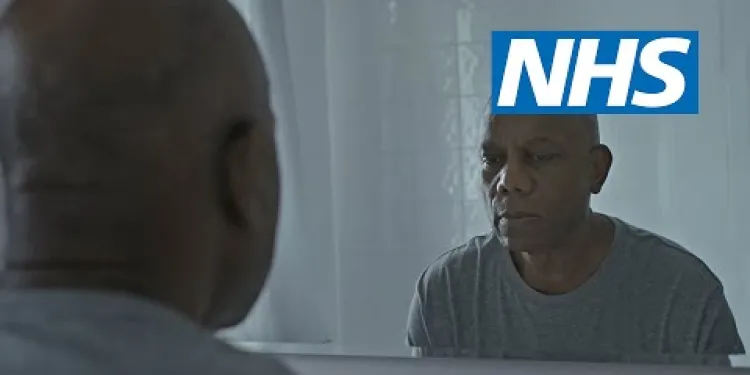
Worried about signs that could be cancer? Contact your GP practice | NHS
Relevance: 52%
-
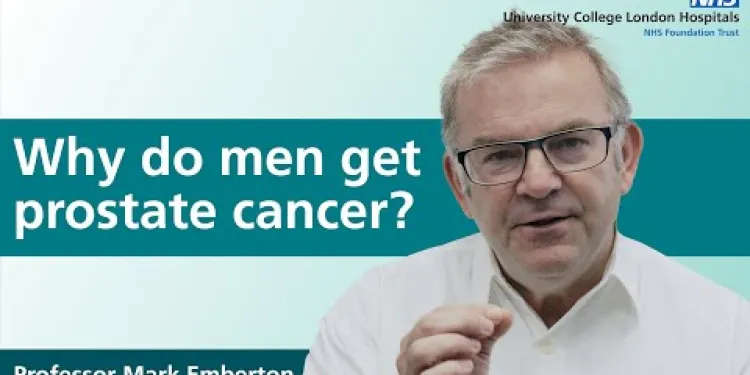
Why do men get prostate cancer?
Relevance: 51%
-
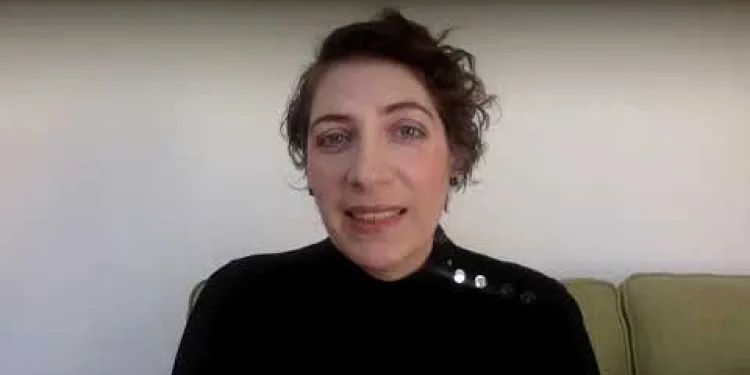
World Pancreatic Cancer Day - No Time to Wait
Relevance: 51%
-
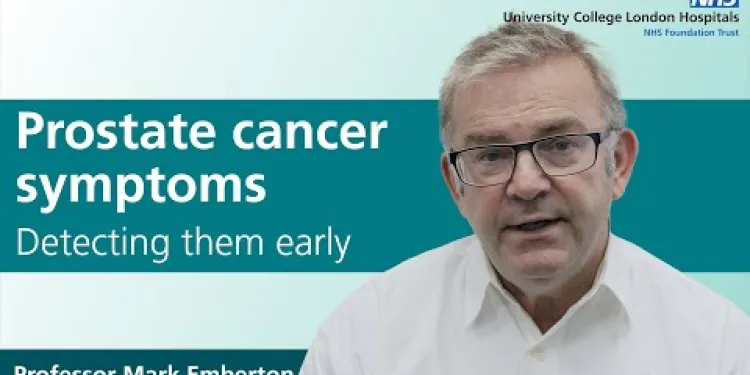
Prostate cancer symptoms - detecting them early
Relevance: 50%
-
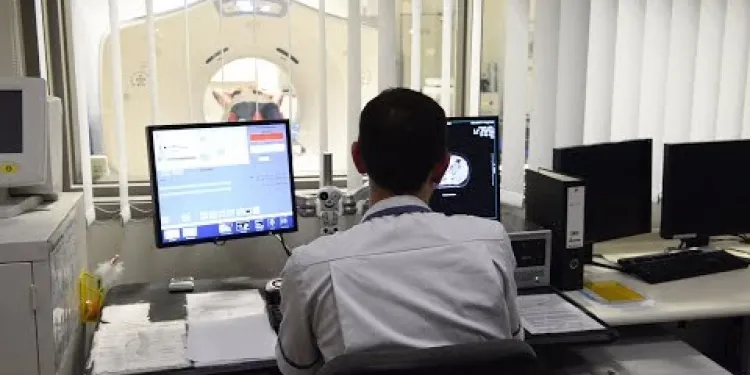
Having radiotherapy for breast cancer - 3 Videos
Relevance: 50%
-
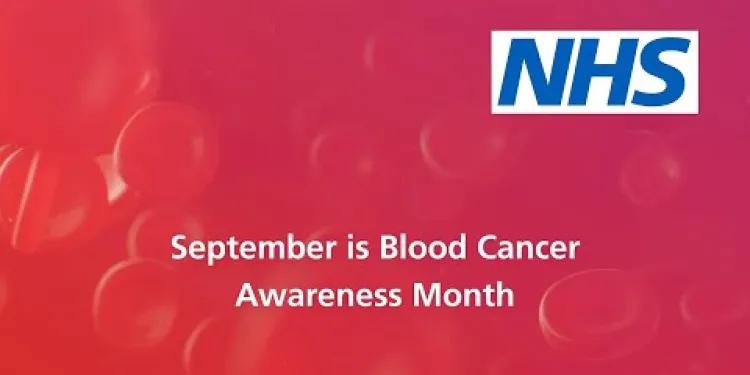
4 facts about blood cancer that you should know | NHS
Relevance: 48%
-

Skin cancer education
Relevance: 47%
-
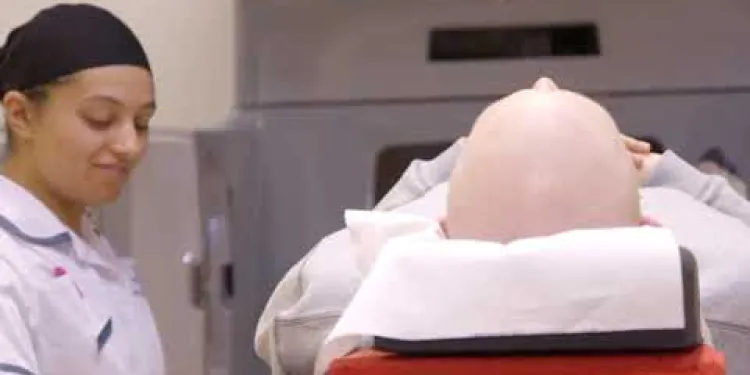
What is Radiotherapy, and its use in treatment for cancers?
Relevance: 46%
-
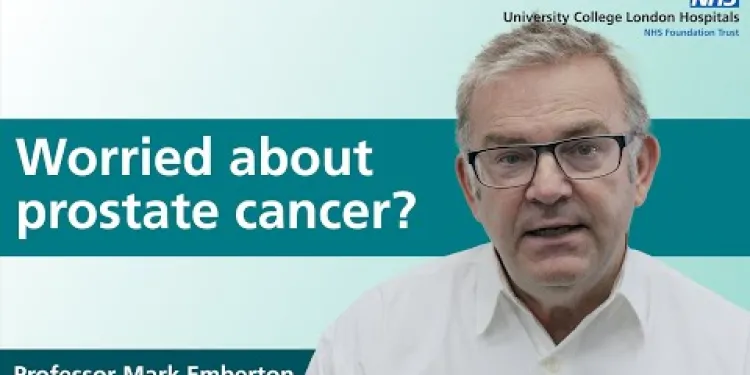
Prostate cancer diagnosis and tests
Relevance: 46%
-
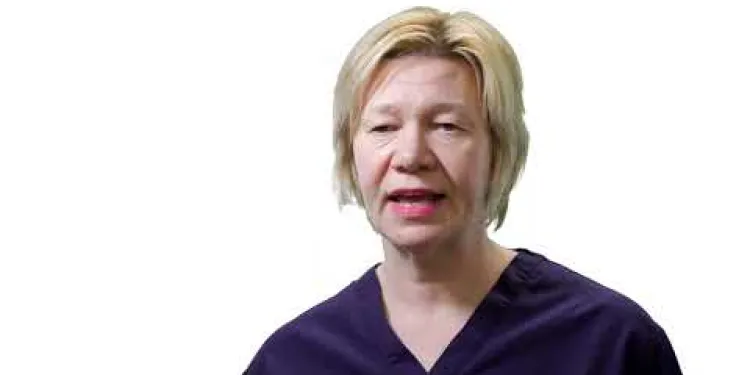
Head and Neck Cancer Diagnosis
Relevance: 45%
-
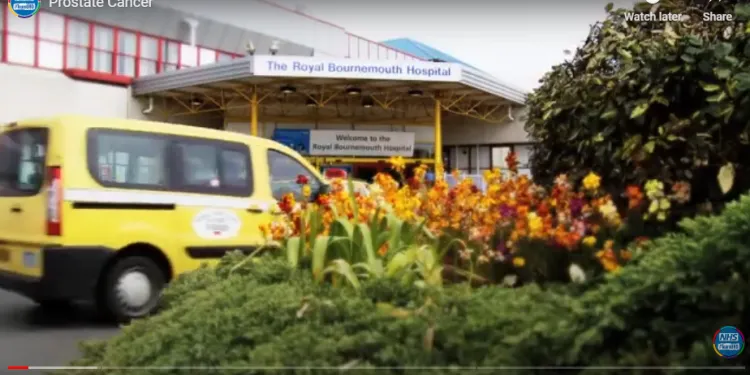
What is Prostate Cancer?
Relevance: 45%
-

Genomics I: An overview of genomics in cancer care
Relevance: 44%
-
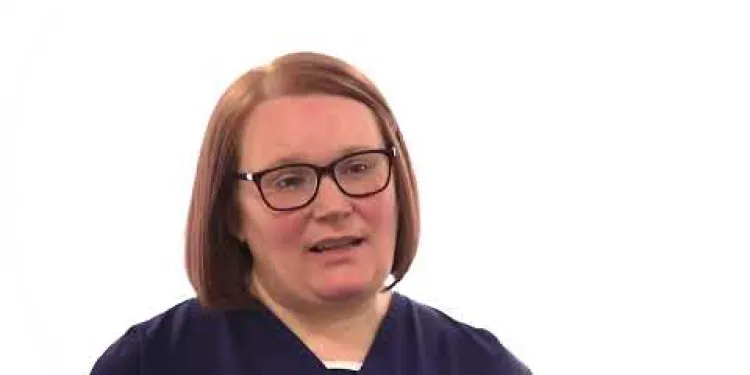
Vaginal Cancer
Relevance: 43%
-
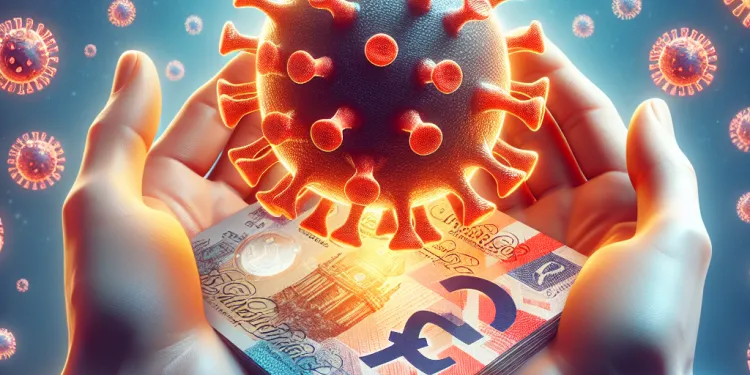
Can HPV lead to cancer?
Relevance: 42%
-
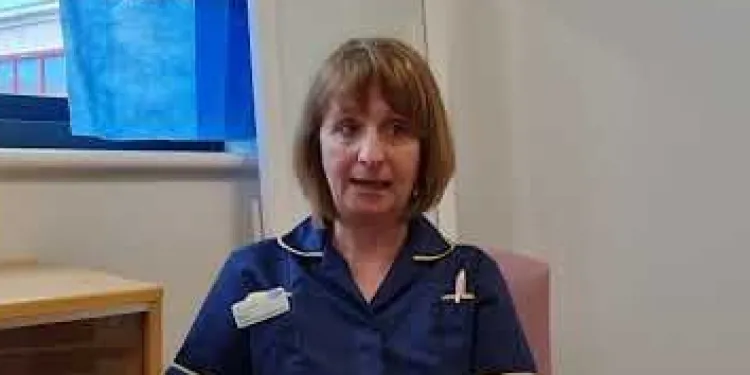
Ovarian cancer - signs and symptoms to look out for
Relevance: 41%
-
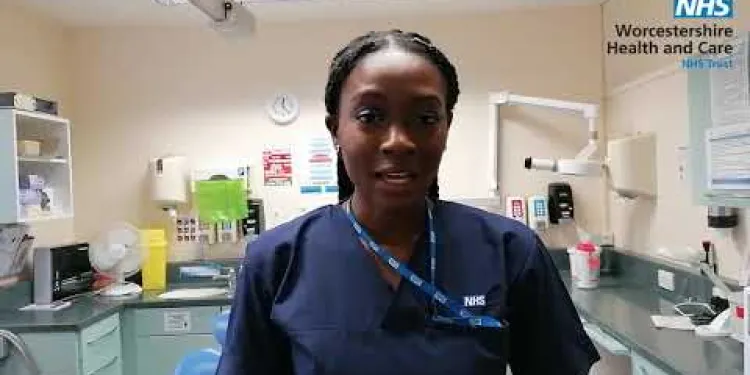
Mouth Cancer Awareness
Relevance: 41%
What is Bowel Cancer?
Bowel cancer, also known as colorectal cancer, is a type of cancer that starts in the large bowel, which includes the colon and rectum. It is one of the most common types of cancer affecting individuals in the UK. Bowel cancer mainly develops from pre-cancerous growths called polyps, which, if not detected and removed, can turn cancerous over time.
Symptoms of Bowel Cancer
Bowel cancer symptoms can be subtle and not necessarily indicate cancer. However, symptoms to watch for include persistent changes in bowel habits such as more frequent, loose stools, or constipation, abdominal pain, and unexplained weight loss. Blood in the stool without any obvious reason, like hemorrhoids, should also be considered a red flag. Early detection significantly increases the chances of successful treatment.
Causes and Risk Factors
The exact cause of bowel cancer is not fully understood. However, several factors may increase the risk of developing the disease. These include age, with the majority of cases occurring in people over 60, a diet high in red and processed meats and low in fiber, obesity, lack of physical activity, and excessive alcohol consumption. Genetic predisposition also plays a role, with a family history of bowel cancer being a significant risk factor. Medical conditions such as inflammatory bowel diseases, including Crohn's disease and ulcerative colitis, further increase the risk.
Diagnosis and Screening
Early diagnosis of bowel cancer significantly improves treatment outcomes. The UK has a bowel cancer screening programme that invites individuals aged 60 to 74 to complete a home testing kit every two years, known as the faecal immunochemical test (FIT). If the results suggest possible cancer, a follow-up colonoscopy is usually needed for a more accurate diagnosis. Other diagnostic methods can include blood tests, CT scans, and MRI.
Treatment Options
Treatment for bowel cancer often depends on the location and size of the tumor, as well as whether it has spread. Common treatments include surgery to remove the cancerous section of the bowel, chemotherapy, and radiotherapy. Biological therapies that use the body's immune system to fight cancer are also being developed and used in some advanced cases.
Prevention
While not all cases of bowel cancer can be prevented, individuals can reduce their risk by making certain lifestyle changes. Eating a healthy diet rich in fruits, vegetables, and whole grains while limiting red and processed meats is beneficial. Regular exercise, maintaining a healthy weight, reducing alcohol consumption, and avoiding smoking can also lower the risk. Taking part in the NHS bowel cancer screening programme is an essential step in prevention and early detection.
What is Bowel Cancer?
Bowel cancer is a kind of cancer that starts in the large bowel. The large bowel includes the colon and rectum. It is very common in the UK. Bowel cancer often starts from small growths called polyps. If polyps are not found and taken out, they can turn into cancer over time.
Symptoms of Bowel Cancer
Symptoms can be small and do not always mean cancer. But you should look out for changes in bowel habits, like more frequent or loose stools, constipation, tummy pain, and losing weight without knowing why. Blood in your poo without any clear reason, like piles, is a serious sign. Finding cancer early makes it much easier to treat well.
Causes and Risk Factors
We do not fully know what causes bowel cancer. But some things can make it more likely, like being over 60. Eating a lot of red and processed meat and not enough fiber can also increase risk. Other things like being very overweight, not exercising, drinking a lot of alcohol, and having bowel diseases like Crohn's disease or ulcerative colitis can raise the risk too. Having someone in the family with bowel cancer can make it more likely for you as well.
Diagnosis and Screening
Finding bowel cancer early makes treatment work better. In the UK, people aged 60 to 74 are asked to do a home test every two years. This is called the faecal immunochemical test (FIT). If the test shows signs of cancer, a detailed look inside the bowel called a colonoscopy is usually done. Other ways to find cancer include blood tests, CT scans, and MRI scans.
Treatment Options
The treatment depends on where the cancer is and how big it is. Common treatments include surgery to remove the cancer, chemotherapy, and radiotherapy. Some advanced cases use new treatments that help the body’s immune system fight cancer.
Prevention
Not all bowel cancer can be stopped, but you can lower your risk. Eat healthy foods like fruits, vegetables, and whole grains and try to eat less red and processed meat. Exercise often, keep a healthy weight, drink less alcohol, and do not smoke. Joining the NHS bowel cancer screening programme is very important to help prevent and find cancer early.
Frequently Asked Questions
What is bowel cancer?
Bowel cancer, also known as colorectal cancer, is a type of cancer that begins in the large bowel, which includes the colon and rectum.
What are the symptoms of bowel cancer?
Common symptoms include changes in bowel habits, blood in the stool, abdominal pain, weakness, and unexplained weight loss.
How is bowel cancer diagnosed?
Diagnosis often involves a combination of a physical examination, colonoscopy, imaging tests, and biopsy.
What are the risk factors for bowel cancer?
Risk factors include age, family history, a diet high in red or processed meat, smoking, alcohol, and certain inherited conditions.
Can bowel cancer be prevented?
While it can't always be prevented, reducing risk factors like maintaining a healthy diet, regular exercise, and routine screening can help.
What treatment options are available for bowel cancer?
Treatment depends on the stage and may include surgery, chemotherapy, radiation therapy, or a combination of these.
Is bowel cancer hereditary?
Some bowel cancers are hereditary, often linked to conditions like Lynch syndrome or familial adenomatous polyposis (FAP).
What is the survival rate for bowel cancer?
Survival rates vary depending on the stage at diagnosis, with early-stage detection having a much higher survival rate.
How common is bowel cancer?
Bowel cancer is one of the most common types of cancer worldwide, particularly in developed countries.
What is a colonoscopy and how is it used in bowel cancer?
A colonoscopy is a procedure that uses a long, flexible camera to inspect the inside of the colon and rectum for cancer signs.
Are there any screenings for bowel cancer?
Yes, there are several screening methods, including stool tests, colonoscopies, and sigmoidoscopies, to detect early signs of cancer.
What role does diet play in the risk of developing bowel cancer?
A diet high in red and processed meats and low in fiber is associated with an increased risk of developing bowel cancer.
Can bowel cancer spread to other parts of the body?
Yes, if not detected early, bowel cancer can metastasize to other organs, such as the liver and lungs.
What are polyps and how do they relate to bowel cancer?
Polyps are growths on the inner lining of the colon or rectum, some of which can develop into cancer over time.
How is the stage of bowel cancer determined?
Staging is based on the size of the tumor, whether it has spread to lymph nodes, and whether it has metastasized to other body parts.
What is the difference between colon cancer and rectal cancer?
Colon cancer occurs in the colon (large intestine), while rectal cancer occurs in the rectum, the last part of the digestive tract.
How does family history affect the risk of bowel cancer?
Having a family history of bowel cancer or certain inherited syndromes increases an individual's risk of developing the disease.
What lifestyle changes can help lower the risk of bowel cancer?
Lifestyle changes such as increasing physical activity, maintaining a healthy weight, reducing alcohol consumption, and quitting smoking can lower the risk.
What are the side effects of bowel cancer treatment?
Side effects vary by treatment but can include fatigue, nausea, bowel changes, and increased risk of infection, especially with chemotherapy.
What support is available for individuals diagnosed with bowel cancer?
Support comes from healthcare professionals, cancer support groups, counseling services, and community organizations.
What is bowel cancer?
Bowel cancer is when bad cells grow inside the bowel. Your bowel is a part of your tummy. It helps your food move through your body.
When these bad cells grow, they can make you feel unwell. But doctors can help. They have special ways to find the bad cells and treat them.
If you find it hard to read or understand, you can ask someone to explain it to you. You can also use tools like simple apps or pictures to help understand.
Bowel cancer is also called colorectal cancer. It starts in the large bowel. The large bowel has two parts: the colon and the rectum.
What are the signs of bowel cancer?
Bowel cancer can make you feel unwell. Here are some signs to look out for:
- Going to the toilet more or less often than normal.
- Blood in your poo.
- Tummy pain that comes and goes.
- Feeling very tired all the time.
- Losing weight without trying.
If you see or feel any of these signs, tell a doctor. They can help check what is happening.
Try using picture diagrams or audiobooks to learn more. These can make understanding easier.
Signs something might be wrong: your poo habits change, you see blood in your poo, your tummy hurts, you feel tired, and you lose weight without trying.
How do doctors find out if someone has bowel cancer?
Doctors have special ways to see if someone has bowel cancer. This is called a diagnosis. Here’s how they do it:
1. Talk and Check: The doctor will ask how you feel and look at your tummy.
2. Test Your Poo: You might need to give a small sample of your poo. This is called a stool test. It checks for signs of cancer.
3. Look Inside: Doctors use a tiny camera on a long tube to look inside your bottom. This is called a colonoscopy. It helps them to see if there are any lumps.
4. Take a Small Piece: Sometimes, they take a little piece from the inside to look at it closely under a microscope. This is called a biopsy.
Helpful Tools: If reading is hard, you can use these tools:
- Listen: Try using an audiobook or ask someone to read it to you.
- Pictures: Look at pictures that can help you understand the words.
- Videos: Watch videos about how doctors find bowel cancer.
To find out what is wrong, doctors often do a few things. They look at your body, use a camera to see inside your tummy, take pictures of the inside of your body, and sometimes take a small piece of tissue to look at it more closely.
If it's hard to understand these things, you can ask the doctor to explain them using simpler words. It can help to have a family member or friend with you to ask questions. Drawing pictures or using videos can also help you see what happens during these tests.
What can make you more likely to get bowel cancer?
Things that can increase risk are:
- Getting older
- Family members who have had it
- Eating a lot of red or processed meat
- Smoking
- Drinking alcohol
- Certain health conditions passed down from parents
If something is hard to understand, you can use pictures or talk to someone who can explain it to you. It's always okay to ask for help.
Can you stop bowel cancer?
You can't always stop it from happening, but there are things you can do to lower the chance. Eating healthy foods, exercising often, and going for regular check-ups with your doctor can help.
What are the ways to treat bowel cancer?
Bowel cancer means there is a problem in the tummy. Doctors can help in different ways:
- Surgery: Doctors might do an operation to take out the bad parts.
- Radiotherapy: Special rays like X-rays can kill bad cells.
- Chemotherapy: Medicines can help to stop cancer from growing.
Talk to the doctor to learn which way is best. You can also ask a family member or a friend to come with you when you visit the doctor.
How the doctor helps you depends on how bad the disease is. They might do an operation, give you medicine to fight the disease, use special rays to kill bad cells, or a mix of these. It can help to talk to someone you trust, use pictures to understand better, or ask lots of questions if you need to.
Can you get bowel cancer from your family?
Bowel cancer can sometimes run in families. This means if your close family members, like your parents or siblings, have it, you might have a higher chance of getting it too.
It’s important to talk to your doctor if you’re worried. Your doctor can help you understand your risk and may suggest useful checks. Remember, not everyone with a family member who has bowel cancer will get it.
To help remember and understand better, you can:
- Write down any questions you have before visiting your doctor.
- Bring someone with you to appointments for support.
- Ask your doctor to explain things in simple words.
Sometimes bowel cancer runs in families. This can happen because of things like Lynch syndrome or a condition called FAP.
How many people get better from bowel cancer?
How long people live depends on when the cancer is found. If doctors find it early, people are much more likely to live longer.
How often do people get bowel cancer?
Bowel cancer is a sickness that some people get. It is fairly common.
Many people have it. Doctors see it a lot.
If you or someone you know is worried, talk to a doctor. They can help.
Use pictures or videos to understand more. They make learning easy and fun.
Bowel cancer is a kind of cancer that many people get. It often happens in countries that are more developed.
What is a colonoscopy and how does it help find bowel cancer?
A colonoscopy is a test that doctors use to look inside your bowel. A bowel is part of your body that helps with digestion.
Doctors use a special camera to see inside. They check for signs of bowel cancer, which is a sickness of the bowel.
This test can help doctors see if there are any problems or if the bowel is healthy.
If you have questions or feel worried, talk to your doctor or nurse. They can help you understand better.
You can use picture books or videos to learn more. These tools can make things easier to understand.
A colonoscopy is a test. A doctor uses a long, bendy camera to look inside the large intestine and bottom. They check for signs of cancer.
Can you get tested for bowel cancer?
Yes, there are different ways to check for cancer early. You can use poop tests, colonoscopies, or sigmoidoscopies. These tests help find signs of cancer early.
How does what we eat affect our chances of getting bowel cancer?
Eating healthy can help lower the chance of getting bowel cancer. Eating lots of fruits, vegetables, and whole grains is good. Try to eat less red meat, like beef, and processed meats, like bacon. Drinking less alcohol and avoiding smoking can also help.
Here are some helpful tips:
- Eat a rainbow of fruits and vegetables.
- Choose whole grains, like brown rice and whole-wheat bread.
- Drink lots of water.
- Get some exercise, like walking or playing outside.
- Talk to a doctor or a nutritionist if you have questions.
Using picture charts or food diaries can help you keep track of healthy eating.
Eating a lot of red meat and foods like hot dogs or bacon and not enough fiber can make it more likely to get bowel cancer.
To help understand this, you can use tools like talking devices that read text out loud. Try reading with a family member or friend who can explain words you don't know.
Can bowel cancer move to other parts of the body?
Bowel cancer is a sickness in the tummy. Sometimes, it can travel to other parts of the body, like the liver or lungs. This is called cancer spreading.
Support tools and tips:
- Ask a doctor for help to understand more.
- Use picture books about the human body.
- Talk to someone about what makes you worried or confused.
Yes, if doctors do not find bowel cancer early, it can spread to other parts of the body like the liver and lungs.
What are polyps and how do they relate to bowel cancer?
Polyps are small growths inside the body. They can grow in the bowel, which is a part of your tummy.
Most polyps are not harmful and do not cause problems. But some polyps can turn into bowel cancer over time. Bowel cancer is a serious illness. It happens in the bowel, which is why it is important to find and remove polyps early.
To help prevent bowel cancer, doctors can use a special camera to look inside your bowel. This is called a colonoscopy. If they find any polyps, they can take them out before they become dangerous.
It is important to tell a doctor if you have a tummy ache or notice any changes in your poo. These can be signs that need a check-up.
To help understand more, you can use picture books or watch videos that explain about polyps and bowel cancer.
Polyps are small bumps inside the colon or rectum. Sometimes, polyps can change and become cancer.
How do doctors know how serious bowel cancer is?
Staging tells us about the cancer. It looks at:
- How big the tumor is.
- If the cancer has moved to the lymph nodes.
- If the cancer has spread to other parts of the body.
How are colon cancer and rectal cancer different?
Colon cancer happens in the colon. The colon is a big part of the body's pathway for food.
Rectal cancer happens in the rectum. The rectum is the last bit of the food pathway in our body.
How does family history affect the risk of bowel cancer?
If someone in your family has had bowel cancer, it might make it more likely for you to get it too. This is because family members share some of the same genes. Genes are like instructions in our bodies that can make us look like our parents.
It is important to talk to a doctor if anyone in your family had bowel cancer, especially if they got it when they were young. The doctor can tell you what to do to stay healthy.
Using pictures or charts can help explain how family history affects health. Also, talking to someone you trust can make it easier to understand.
If your family members have had bowel cancer, or if you have certain genes from your family, you might have a higher chance of getting this illness.
How can you change your life to lower the chance of getting bowel cancer?
Here are some simple things you can do to stay healthy:
- Eat Healthy: Eat lots of fruits, veggies, and whole grains. Try to eat less red and processed meat like bacon and sausages.
- Exercise: Move your body every day. Try walking, running, or playing a sport. Aim for about 30 minutes a day.
- Don't Smoke: If you smoke, try to stop. Smoking is bad for your health.
- Limit Alcohol: Drink less alcohol. If you can, try not to drink at all.
- Stay at a Healthy Weight: Try to keep a healthy weight by eating well and moving more.
Here are some tools that might help:
- Use a food diary to keep track of what you eat.
- Set reminders to move and stretch.
- Find a friend to join you in activities.
Talk to your doctor for more advice.
There are some changes you can make to stay healthy. Try to move your body more and keep a healthy weight. It is also good to drink less alcohol and stop smoking. These changes can help make you healthier.
What happens to your body when you get bowel cancer treatment?
Different treatments can cause different side effects. These can include feeling very tired, feeling sick to your stomach, changes in how often you go to the bathroom, and getting infections more easily. This is especially true with a treatment called chemotherapy.
What help can people with bowel cancer get?
If you have bowel cancer, there are people and things that can help you.
Here are some ways to get support:
- Talk to a doctor or nurse. They know a lot about cancer and can help you feel better.
- Join a support group. You can meet and talk to other people who have bowel cancer.
- See a counselor or therapist. They can help you with your feelings.
- Use apps or websites to learn more about bowel cancer.
- Ask family and friends for help. They can be there to support you.
Remember, you are not alone. Many people want to help you.
Help comes from doctors, nurse, groups for people with cancer, talking services, and local community groups.
Useful Links
- Ergsy carfully checks the information in the videos we provide here.
- Videos shown by Youtube after a video has completed, have NOT been reviewed by ERGSY.
- To view, click the arrow in centre of video.
- Most of the videos you find here will have subtitles and/or closed captions available.
- You may need to turn these on, and choose your preferred language.
- Go to the video you'd like to watch.
- If closed captions (CC) are available, settings will be visible on the bottom right of the video player.
- To turn on Captions, click settings .
- To turn off Captions, click settings again.
More Items From Ergsy search
-

Bowel cancer - Symptoms and signs to look out for
Relevance: 100%
-

Learn about bowel cancer (British Sign Language version)
Relevance: 79%
-

What are the risk factors for bowel cancer?
Relevance: 78%
-

What role does diet play in the risk of developing bowel cancer?
Relevance: 75%
-

What lifestyle changes can help lower the risk of bowel cancer?
Relevance: 75%
-

What is the difference between colon cancer and rectal cancer?
Relevance: 73%
-

Can bowel cancer spread to other parts of the body?
Relevance: 72%
-

What treatment options are available for bowel cancer?
Relevance: 72%
-

Bowel cancer screening: Alan Titchmarsh and Tommy Walsh | NHS
Relevance: 71%
-

What is Bowel Cancer?
Relevance: 70%
-

How does family history affect the risk of bowel cancer?
Relevance: 69%
-

Can bowel cancer be prevented?
Relevance: 67%
-

Taking a Genetic Family History - The Conversation (Bowel Cancer)
Relevance: 67%
-

What is the survival rate for bowel cancer?
Relevance: 66%
-

How is the stage of bowel cancer determined?
Relevance: 65%
-

How common is bowel cancer?
Relevance: 59%
-

What support is available for individuals diagnosed with bowel cancer?
Relevance: 58%
-

What is Cancer?
Relevance: 57%
-

How is bowel cancer diagnosed?
Relevance: 57%
-

Ovarian Cancer
Relevance: 56%
-

Endometrial Cancer
Relevance: 55%
-

Treating prostate cancer
Relevance: 54%
-

Don't carry the worry of cancer with you | NHS
Relevance: 53%
-

Breast cancer: testing and treatment | NHS
Relevance: 52%
-

Worried about signs that could be cancer? Contact your GP practice | NHS
Relevance: 52%
-

Why do men get prostate cancer?
Relevance: 51%
-

World Pancreatic Cancer Day - No Time to Wait
Relevance: 51%
-

Prostate cancer symptoms - detecting them early
Relevance: 50%
-

Having radiotherapy for breast cancer - 3 Videos
Relevance: 50%
-

4 facts about blood cancer that you should know | NHS
Relevance: 48%
-

Skin cancer education
Relevance: 47%
-

What is Radiotherapy, and its use in treatment for cancers?
Relevance: 46%
-

Prostate cancer diagnosis and tests
Relevance: 46%
-

Head and Neck Cancer Diagnosis
Relevance: 45%
-

What is Prostate Cancer?
Relevance: 45%
-

Genomics I: An overview of genomics in cancer care
Relevance: 44%
-

Vaginal Cancer
Relevance: 43%
-

Can HPV lead to cancer?
Relevance: 42%
-

Ovarian cancer - signs and symptoms to look out for
Relevance: 41%
-

Mouth Cancer Awareness
Relevance: 41%